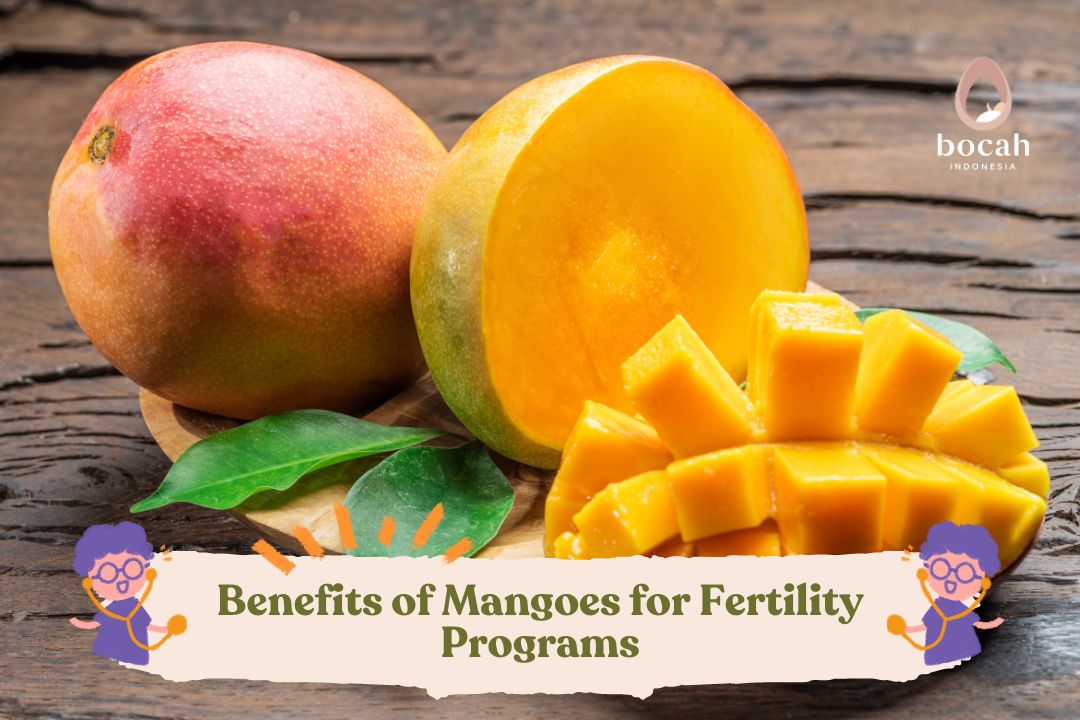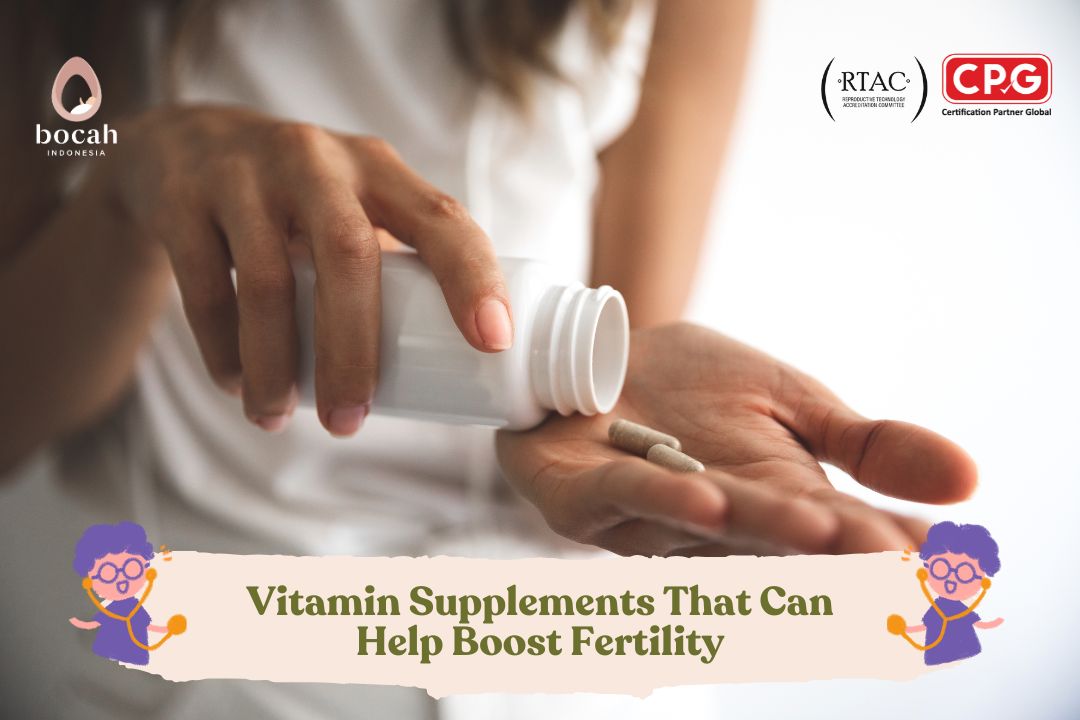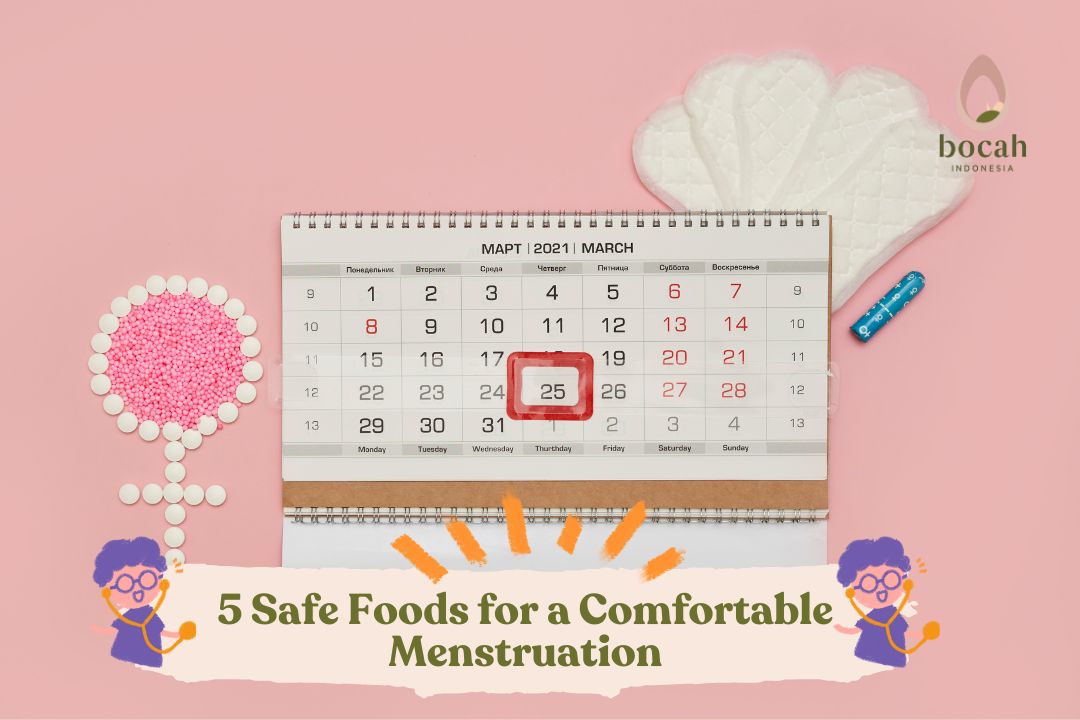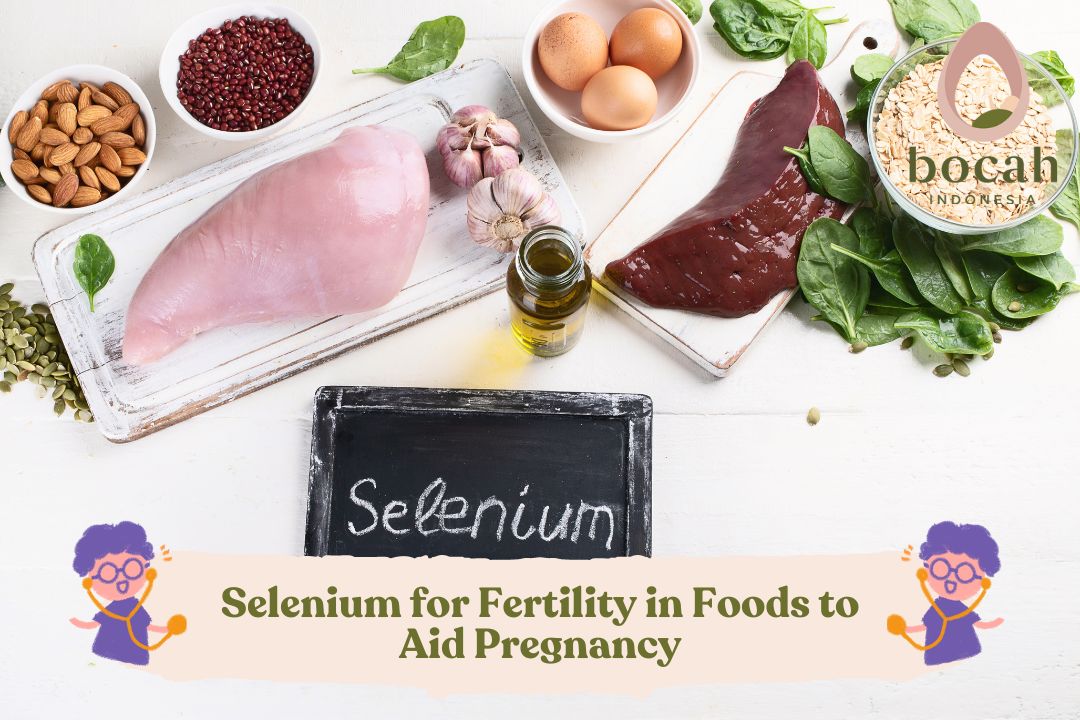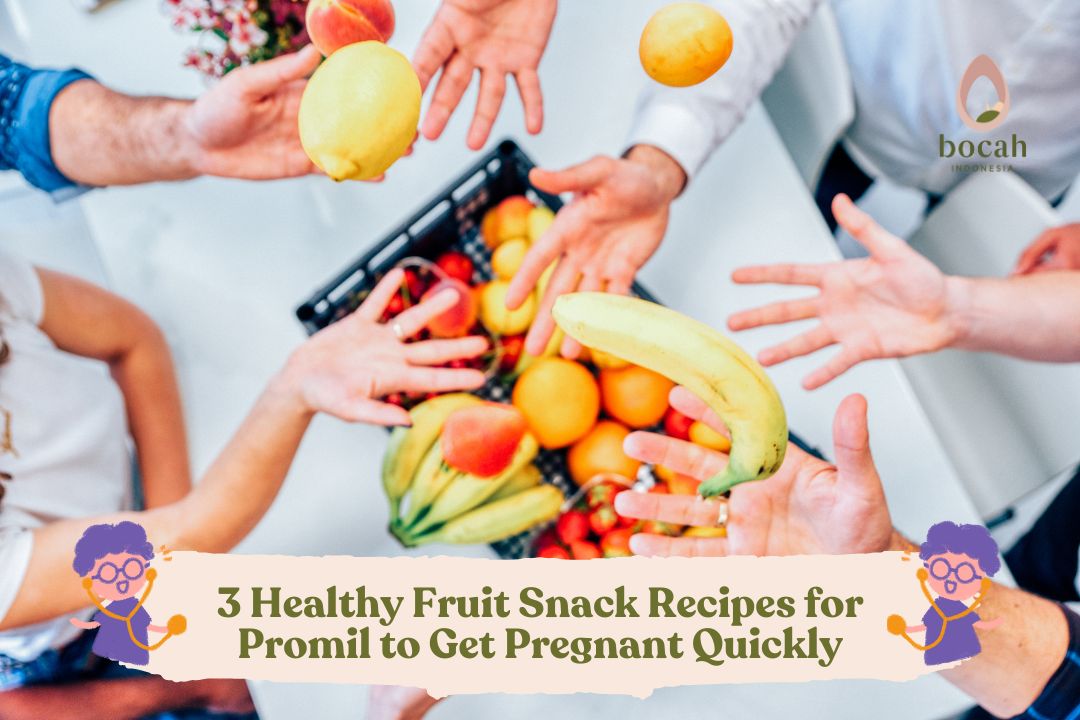Fiber-Rich Foods Help Maintain Healthy Fertility
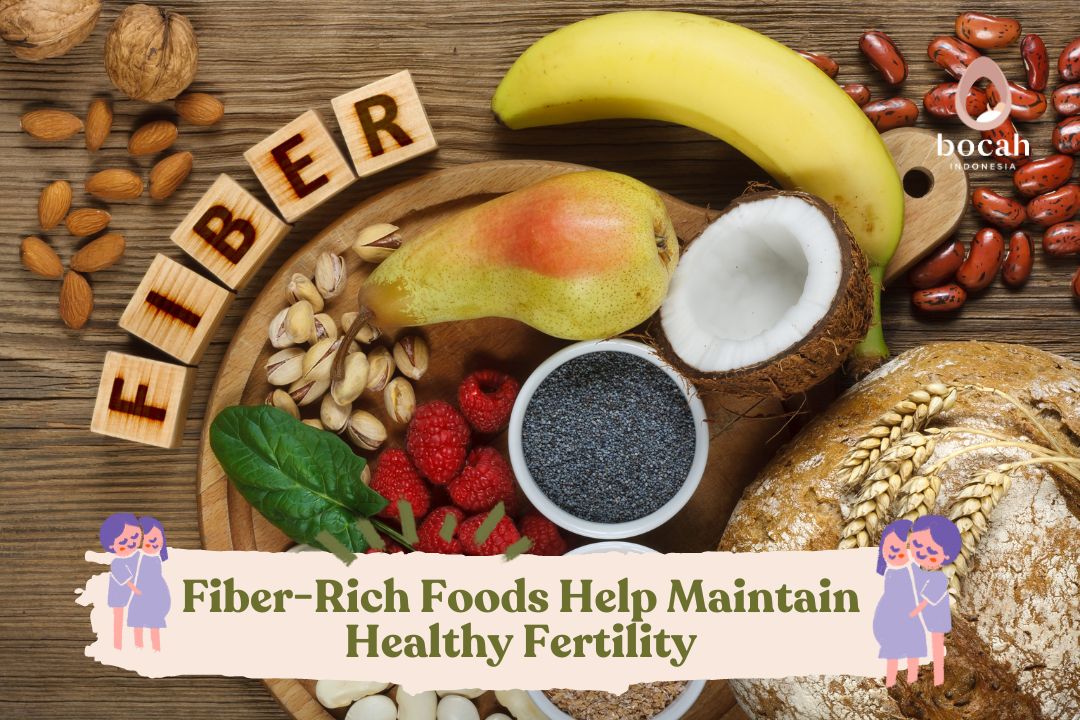
Fiber-rich foods are a good choice for parents undergoing a fertility program. Let’s find out the explanation here! Fertility is one of the important aspects to consider when planning a pregnancy or following a fertility program. In addition to a healthy lifestyle, dietary intake also plays a big role in maintaining and enhancing fertility. One of the essential components of a healthy diet for fertility is fiber. Here is information on the benefits of fiber and some fiber-rich foods that can support healthy fertility.
The Impact of Diet on Fertility
A 2018 study from Australia showed that eating too much fast food and not enough fresh fruit can make it more difficult for women to get pregnant. Diet can indeed affect fertility, but other factors such as smoking, obesity, sleep quality, and lack of physical activity also need to be considered. This study asked thousands of women about their eating habits before pregnancy. The results showed that women who rarely ate fresh fruit and frequently ate fast food tended to take longer to get pregnant.
Around 15 percent of couples experience difficulty getting pregnant. In many cases, the problem lies with the woman, such as structural issues (fibroids, cysts), hormonal issues (PCOS, thyroid disease), or advanced age. Although this study does not directly prove that certain foods cause difficulty getting pregnant, the results are consistent with the view that a healthy lifestyle, including a good diet, can support fertility.
So, it is best for parents to eat healthy foods, avoid fast food, and adopt a healthy lifestyle to increase the chances of pregnancy.
Benefits of Fiber for Fertility
1. Maintaining Ideal Weight
Fiber helps parents feel fuller for longer, reducing the desire to overeat. By maintaining an ideal weight, parents can reduce the risk of hormonal disorders often associated with obesity.
Tanya Mincah tentang Promil?
2. Stabilizing Blood Sugar Levels
Fiber-rich foods help slow the absorption of sugar in the blood, thereby helping to control blood sugar levels. Stable blood sugar levels are important for maintaining the balance of reproductive hormones.
3. Reducing Inflammation
Fiber has anti-inflammatory effects that can help reduce inflammation in the body. Chronic inflammation can disrupt reproductive function and overall health.
4. Improving Digestive Health
Fiber improves digestive health by keeping bowel movements regular and preventing constipation. Healthy digestion is very important for parents’ overall health.
5. Supporting Hormonal Balance
Fiber-rich foods help the body eliminate excess estrogen. Hormonal balance is essential for a regular menstrual cycle and healthy ovulation.
Types of Fiber-Rich Foods
Here are some types of fiber-rich foods that parents can include in their daily diet to support healthy fertility:
1. Fruits
Fiber-rich foods that are easy to find include fruits. Fruits like apples contain both soluble and insoluble fiber, which are good for digestion. In addition to apples, pears are also high in fiber and low in calories, making them suitable for a healthy diet. Adding berries like strawberries, blueberries, and raspberries, which are rich in fiber and antioxidants, can be a good option to meet daily fiber needs.
2. Vegetables
Besides fruits, parents can also get fiber from consuming green vegetables like broccoli. In addition to fiber, broccoli also contains vitamins C and K, which are beneficial for health. Spinach is another good choice because it is rich in fiber and iron, which are important for blood health and fertility. Not only leafy green vegetables, but other vegetables like carrots can also be a good fiber choice. Carrots also contain beta-carotene, which is important for reproductive health.
3. Whole Grains
The next choice of fiber-rich foods is whole grains. You can consume oats for breakfast, as oats are a good source of soluble fiber that helps stabilize blood sugar levels. Try replacing white rice at home with brown rice. Brown rice contains more fiber than white rice and is rich in nutrients. Additionally, you can consume quinoa, which is high in fiber, protein, and contains all essential amino acids needed by the body to support a healthy pregnancy.
Other good grains for fertility programs include chia seeds, which contain soluble fiber that helps control blood sugar levels and maintain digestive health. You can also add flaxseeds to your daily menu because flaxseeds are a good source of fiber and omega-3, beneficial for reproductive health. You can add flaxseeds to your daily meals, such as sprinkling them on yogurt, smoothies, or salads.
4. Nuts
If you like snacking, try replacing snacks with healthy ones to support the success of your fertility program. Choose snacks like almonds, which are high in fiber and healthy fats that are good for hormonal balance. Lentils are another excellent choice because they are a source of plant-based protein that is rich in fiber and other essential nutrients.
Lentils not only help in the formation and repair of body tissues, which are important during pregnancy, but are also rich in folic acid, which is crucial for healthy fetal development and can reduce the risk of neural tube defects.
Additionally, lentils contain iron that helps increase the production of red blood cells and prevent anemia, which often occurs during pregnancy. Black beans are also a good choice because they contain high fiber as well as protein and iron, which are good for blood health and fertility.
The high fiber in black beans helps regulate digestion and maintain stable blood sugar levels, which is important for hormonal balance. The iron in black beans plays an important role in increasing the production of red blood cells, thus preventing anemia and supporting overall health.
Tips for Increasing Fiber Intake
- Eat fresh fruits and vegetables: Include a variety of fruits and vegetables in every meal.
- Choose whole grains: Replace white bread with whole wheat bread, and white rice with brown rice or quinoa.
- Add nuts and seeds: Sprinkle flaxseeds or chia seeds into smoothies, yogurt, or salads.
- Try legumes: Include lentils or other legumes in soups, salads, or as side dishes.
Parents, by regularly consuming fiber-rich foods, you not only support your own health but also increase your chances of fertility. Let’s start paying attention to the foods you consume to support the success of your fertility program!
This article has been medically reviewed by Dr. Chitra Fatimah.
Source:
- Aoun, A., El Khory, V., & Malakieh, R. (2021). Can Nutrition Help in the Treatment of Infertility? Preventive Nutrition and Food Science, 26(2), pp. 109–120.
- Their Impact on Carbohydrate Metabolism and Fertility-A Potential Role in the Diet of Women with Polycystic Ovary Syndrome. Nutrients, 12(11), pp. 3491.
- Gurevich, R. Verywell Family (2020). Fertility Foods to Boost Your Odds of Conception.
- Cleveland Clinic (2018). Study Suggests Bad Diet May Harm a Woman’s Fertility.


